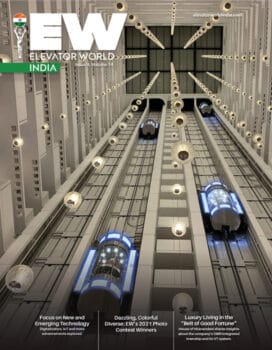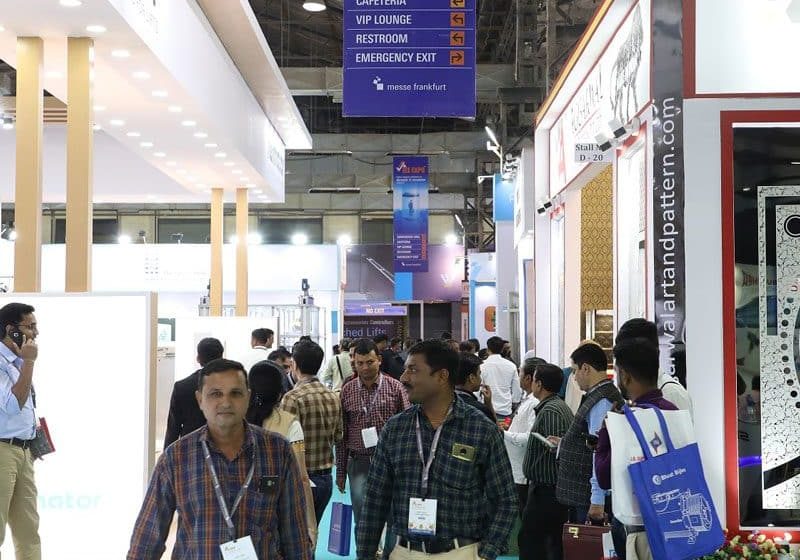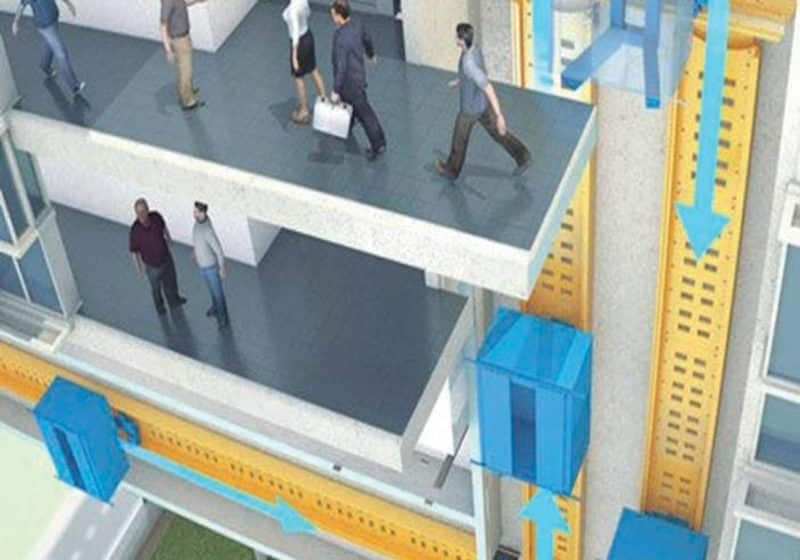Data and innovation are key drivers of digital transformation in India’s real estate industry.
The real estate industry, which is perceived to be one of the lowest digitized industries in India, is undergoing a digital transformation to remain relevant and offer high value to stakeholders. Technology, data and innovation are the key drivers of digital transformation that are redefining business processes in this new, digital era. Amidst the trepidations of the pandemic, technology has proven to be an effective tool across various industries through applications such as AI, Machine Learning (ML) and robotics. Moreover, with the rise in Big Data and the Internet of Things (IoT), businesses are now able to accurately analyze customer behavior and make informed decisions. These analytical tools have also proven useful in gathering and analyzing a large amount of real-time and historic data of the various building systems, including electrical, HVAC, fire safety, telecommunications and other utilities, effectively managing their operations at low costs. Although tech adoption in the construction industry is still in a nascent stage, it is gaining traction with construction-based tech start-ups receiving a total funding of US$104 million (INR7,656 million) as of June 2021, the highest in the past seven years.
The use of technology in design-build-operate lifecycles of projects has improved accuracy and efficiency through automated functions and predictive analytics, helping businesses to identify and mitigate on-site and off-site risks. For instance, IoT technology is playing a pivotal role in reducing occupational risks on construction sites by tracking worker and vehicle movements through sensors and measuring exhaustion through biometric sensors. Realizing this opportunity, developers and stakeholders are increasingly embracing technology and incorporating various tech-based solutions for better design and execution of their projects with minimum human intervention.
Technologies Optimizing Building Facility Management
Over the past few years, AI and IoT have been extensively explored by developers and occupiers to monitor building operations, such as automated smart parking that allows the users to find and reserve parking slots, automated sliding doors with scanners for secured entry/exit and predictive and automatic maintenance solutions for utilities. Predictive maintenance can save 8%-12% over preventive maintenance, and about 40% on reactive maintenance. Automated facility management systems have been the most effective in streamlining the whole function with more accuracy and minimum human oversight. By using machine-learning and real-time data, managers can analyze and predict the factors that trigger repairs and require maintenance ahead of time. In commercial real estate, these also cater swiftly to employee-generated actions, like maintenance support tickets and automatic cleaning solutions, thus increasing the efficiency of the overall facility-management system.
Technology Makes Planning and Construction More Efficient
AI and IoT technologies are adopted in the construction industry to overcome challenges like safety issues, labor and resource shortages, costs and time overruns. Full-scale digitalization can help the construction sector realize about 12% to 20% in annual cost savings. Applications, such as 3D printing that allows the flexibility to print complex designs while significantly reducing the construction time and labor costs, self-cleaning building materials that minimize the maintenance and operational cost, and safety alerts that analyze the operations and safety measures taken on-site and notify the authorities in case of any infringements are some of the technologies being adopted by the construction industry. One of the important sectors where technology has intervened is efficient project planning, where AI and ML are used to track real-time, on-field construction conditions and, in case of any issues, offer suitable solutions based on the historical data feed from similar projects. These technologies also track the project cost. Time can predict overruns based on factors like size of the project, type of contract, leadership competency and resource availability and, thus, can notify the authorities with necessary recommendations.
PropTech Enhancing Property Transaction Experience
AI and ML applications can perform different analyses on a real estate property to determine its valuation, make future value predictions, anticipate price trend fluctuations and calculate current market rents based on comparable, similar properties. These can increase market flexibility and help real estate investors and homebuyers to find valued properties, distressed properties and off-market opportunities for value creation. Technology intervention has also altered the buying and selling patterns of properties by empowering both the buyers and sellers with access to more data, thus influencing their decision-making patterns.
Technologies like virtual home tours through augmented reality (AR)/virtual reality (VR) applications, AI chatbots, remote surveying and drone surveying have allowed investors and buyers to indulge in an immersive property buying and renting experience, while also saving time by surveying multiple properties in a limited period. Real estate marketplaces involve different AI-based algorithms to help users personalize and streamline property searches by identifying the user’s preferences and choices through automated search engines and inquiries.
Smart Functions in VT Equipment To Fetch Higher Returns
Developers have also introduced AI technologies in buildings’ elevators and escalators with features like touchless and voice-controlled panels, temperature sensors and automatic disinfection systems using UV lights. Advanced technologies in the elevator and escalator industry, such as predictive and preventive maintenance, use ML to predict faults and perform the necessary service beforehand to prevent a breakdown of the lift or escalator. The functions of vertical-transportation (VT) equipment can also be monitored remotely by management personnel to obtain such information as the duration of a lift’s operation, position and motion speed, power consumption, breakdown and emergency fault notifications. Buildings equipped with these “smart functions” fetch higher returns and property appreciation, and prompt developers to include them as a part of their real estate portfolios.
By using machine-learning and real-time data, managers can analyze and predict the factors that trigger repairs and require maintenance ahead of time.
Apart from property-related information, some applications also collect data on neighborhood transport services, crime rates, nearby social infrastructure facilities like schools and hospitals and predict which properties and neighborhoods will yield the highest returns. Specific AI algorithms also help sellers and landlords identify eligible and prospective customers, and generate leads for potential buyers by using natural language processing programs to identify these potential customers and thus target their marketing campaigns and promotions toward these identified leads. This has made the complete procedure of buying, selling and renting properties more transparent. We advise developers and brokers to adopt these technologies to distinguish their offerings and gain a competitive advantage in the market.
Real-Time Data Aids Health and Wellness
Although technology has empowered the real estate industry with various data-driven decisions — backed with an enormous data bank — the majority of the accumulated data remains unfiltered and lacks standardization. Landlords and employers focusing on employee health and well-being in a pandemic or other potentially dangerous health situation should look for technology-based solutions that can be applied to monitor real-time occupancy of the building and can be beneficial in crowd-management operations and in maintaining social distancing while improving the overall employee safety experience. On a broader platform, big data analysis with AI and ML technologies can provide insight to investors and buyers about potential industry growth, and can play an important role in reshaping the real estate industry to make it more efficient.
Get more of Elevator World. Sign up for our free e-newsletter.







